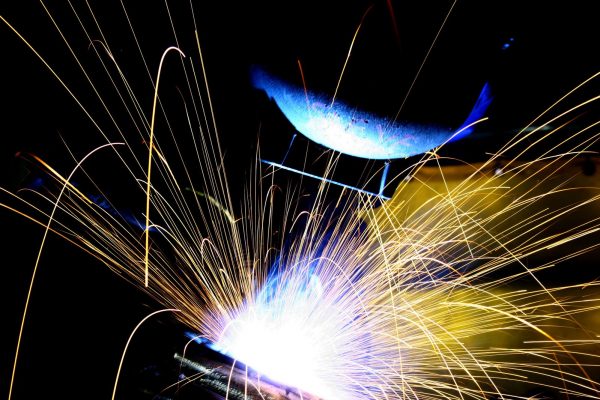There’s no substitute for high-quality materials in manufacturing. Just like a chef needs to start with fresh ingredients to make a delicious meal, metal fabricators require certified, industrial-grade metals to create machinery that’s reliable, durable, and safe. There’s no substitution.
Different projects, however, require different types of raw materials. Some metals lend themselves to certain applications, and so a crucial part of the product design process is sourcing and selecting the right metals for the job.
At Robycs Technology, we provide metal fabrication services in Sydney, like forming, cutting, and CNC machining to create metal components for manufacturing, energy production, and other industrial uses. Our customers demand excellence, and that’s why we’re committed to bringing the highest quality metal fab products to the Australian market.
It all begins with the right materials. In this article, we’re going to explore the different raw materials that we use to bring customised mechanical parts straight to your plant.
Types of Metals
These are some of the most common types of metals that we use for metal fabrication.
Iron: This most abundant metal on earth has a long history of over three thousand years of human use! And we’re not just talking about cast iron skillets. Since it rusts easily, we don’t often find much iron on the factory floor, though most iron is used to manufacture our second metal.
Steel: An alloy of iron and carbon, steel is the most common metal for industrial use cases. Flexible, strong, and affordable, we can’t even begin to list all the possible uses for steel. This metal is truly the backbone of our modern world. There are also several notable types of steel, including stainless steel, which contains aluminium, chromium, and high carbon levels. Stainless steel is highly corrosion-resistant, making it ideal for its long lifespan and low required maintenance. Carbon steel, on the other hand, is harder than other types of steel because it contains the highest quantities of carbon, though it has less ductility and malleability than other steels.
Aluminium: Light, rugged, and versatile, this metal is indispensable to industry because of its ductility and high strength to weight ratio, which makes it perfect for applications like aviation that need lightweight materials. We also usually use this metal for low-temperature applications like aerospace or refrigeration because it doesn’t perform well above 200 degrees Celsius.

Copper: As one of the best and cheapest conductors of electricity, copper is ubiquitous with electrical components and wiring. It’s also tough, malleable, and resists corrosion; making is very useful for harsh environments like heavy industry.
Brass: We often find this alloy of copper and zinc in everything from gear components to pipe fittings to nuts and bolts. And, of course, it’s great for creating instruments, but that’s another story.
Bronze: This copper alloy has seen use since around 3500 BC, this metal weighs more than steel, is stronger than copper, and has a lower melting point.
Magnesium: The most important feature of this metal is that it’s lighter than any of our other industrial-grade metals. This makes it useful for applications where we need lightweight stiffness over strength, such as for aircraft, automobile parts, or rapidly rotating motors.
The Raw Materials
Metal arrives to our shop floor in Sydney in a variety of shapes and sizes. The kind we use most is a flat metal that’s been rolled or pressed into thin, flat pieces. There are three main types of flat metal. Foil or leaf is the thinnest, while sheet metal is the most common and has a thickness of less than 6mm. Plate metal is the third type of flat metal, and this includes any flat metal thicker than 6mm.
Our welding team also relies on high-quality welding wire for metal fabrication. They use different types of easily soldered metals that are formed into thin, circular rods to join together various metal components.
There are also other round or irregularly raw materials that includes shot, pellets, pieces, chips, and ingots. Each of these shapes lends itself to certain applications, and so it’s important to have a good source for each of them.

We Never Compromise on Material Quality for Fabrication Projects
Robycs Technology carefully vets our entire supply chain so that we can be sure that we’re only working with the highest quality raw materials. All components need to comply with regulations from the International Organization for Standardisation (ISO), particularly their ISO 9001: 2015 and AS 9102 standards.
That’s why we never compromise or use products like cheap steel from less scrupulous suppliers, which is shown to be unsafe for a variety of applications. Instead, we source all of our materials from companies like Bluescope Steel, which has provided grade A steel to Australian businesses since 1915. We prioritise safety above everything else.
We’re committed to strong metals at a reasonable price, and we also agree with Bluescope’s mission to “develop, manufacture, and sell steel products and solutions in a manner that provides for a sustainable future.” We agree that “this requires a focus on continuous improvement, adopting new operating methods and anticipating new products to support the future needs of a sustainable society.”
Still, whether we’re working with sheet metal or aluminium from Australian companies like Rio Tinto, we always perform quality assurance checks on all our raw materials before fabricating them into the components you rely on for production. That’s our commitment to excellence.
Want to learn more about how Robycs Technology creates custom metal parts for a variety of Australian businesses? Learn more about our Sydney metal fabrication services now.

